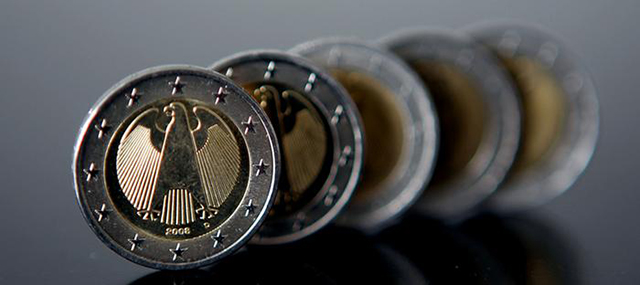With recession possible in Europe and Germany, the German coalition government is facing criticism and pressure on all fronts. However, Finance Minister Wolfgang Schäuble is not inclined to delay the policy of budgetry consolidation.
“We have balanced the federal budget. We only spend what we take in. We are investing in Germany’s future without taking on new debt,” Schäuble has repeatedly stated over the past few weeks.
In fact, the “schwarze Null” policy was one of Merkel’s main campaign promises in 2013 and one of the main points of the coalition agreement with the German Social Democrats. This “schwarze Null” (or “black zero” in English) consists of balancing the budget whilst not taking on any new debt from 2015 onwards, the first time since 1969. For both Angela Merkel and Wolfgang Schäuble, this would mean a success of budgetry policy and serve as an example for the whole Europe.
But economic sentiment in Europe and Germany is worsening and priorities could change. In the 2Q, the economy shrank by 0.2% and the government has cut the 2014 growth forecasts from 1.8% to 1.2% and from 2% to 1.3% in 2015. In addition, stagnation in Europe, the slowdown in China and other emerging markets, as well as sanctions against Russia and the new conflicts in the Middle East have impacted on the German export engine. Therefore, the main international institutions like the OECD and IMF, German think tanks and European peers like France doubtif prioritising budgetry consolidation is the best course of action and are demanding larger public and private investment in infrastructure and education.
But Economics Minister Sigmar Gabriel (SPD) has already made clear that in spite of the latest economic forecasts, there is no reason to leave or to change the course of economic, social or labour policies of the federal government.
“We’re not going to help the German economy with some flashes in the pan and more debt,” said Sigmar Gabriel. But even within the Social Democratic Party, criticism have begun to emerge from leading figures such as Ralf Stegner and Carl Schneider. Both have warned that the “schwarze Null” is simply not social democratic, and what Germany really needs now is increased investment.
Michael Wohlgemuth, director of the think-tank Open Europe in Berlin, thinks that the “schwarze Null” should stand.
“The balanced budget rule is soon becoming a constitutional commitment (both for the federal and the state levels). With the highly increasing tax receipts, the German government should actually run surplus and either reduce tax rates or pay back debt (which is still well above the 60% target). If under these conditions not even the German government would balance its budget – how can it demand from others to do so (as it did with the fiscal compact for Eurozone member states)?”.
Nevertheless, Wohlgemuth also points out that Germany’s capital stock is depreciating faster than new investments are replacing it. This, combined with a declining workforce leaves no hope for a growing economy. But according to him, that does not mean that Germany’s government must add more public debt to the mix.
“The Merkel government is still in the position to increase investment without abandoning the new constitutional balanced budget rule. So far the German government has committed itself to spend the extra money on more generous pensions and on its lonely revolution of the energy mix. It would need the courage to re-allocate public spending from these projects to public investment (education, research, infrastructure). German politics should also provide better regulatory and tax environments for private domestic investment and lower barriers to entry for its service sector. Germany should invest in reforms,” concludes Prof. Wohlgemuth.
*Image: Picture-alliance/DPA
**Related content: Germany’s dilemma: Between Europe and the AfD’s europhobia






Be the first to comment on "Germany’s budget 2015: Saving to grow or growing to save?"